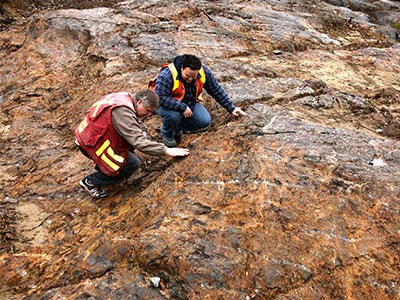The uncertainty created by the Ontario government in its mishandling of First Nations consultation were cited by the Fraser Institute in its choice to drop the province down in its annual rankings of global mining-friendly jurisdictions.
Ontario placed 23rd, falling nine spots from last year’s survey.
Much of the blame is being placed on the regulatory and policy confusion created within the resource industry stemming from the province’s amendments to the Mining Act and in dealing with First Nations issues.
“In Ontario, the new Mining Act amendments regarding First Nations consultation have resulted in complete incomprehensibility of rights on all sides,” said Kenneth Green, the institute’s senior director of energy and natural resources, in a Feb. 24 news release.
The Calgary-based think tank annually ranks 122 jurisdictions around the world based on geological attractiveness, government policy and investment.
The report included a survey and comments from mining companies on operating in Ontario.
One respondent aid the act has resulted in “near-veto powers against exploration” by First Nations concerning their traditional lands, while other called it an “impractical regulation” that’s caused a “misinterpretation of rights on all sides.”
The companies bashed the overall lack of continuity between on regulations between the federal and provincial governments.
Other respondents cited a “lack of transparency” and “extreme conflict” in dealing with First Nations groups on land use, the high costs associated with permitting, “poor decisions on infrastructure” and the lack of provincial agreements with First Nations related to the Ring of Fire development.
One company complained that the government has abandoned the industry and has forced them to deal directly with Aboriginal groups. Government provides support to these groups, the respondent added, but nothing for junior miners.
Saskatchewan ranks as the top jurisdiction in Canada and finished second worldwide behind Finland.
Five Canadian jurisdictions finished in the top 10 globally – Saskatchewan (2), Manitoba (4), Quebec (6), Newfoundland and Labrador (8) and Yukon (9). The report said Quebec has rebounded after a three-year period of increased red tape, higher royalties and regulatory uncertainty.
In the Fraser rankings, British Columbia experienced a major fall from grace, dropping 12 spots from last year’s survey to finish 28th this time.
Uncertainty and ambiguity on disputed land claims in that province about what areas will be protected were considered by the institute to be a deterrent to investment and exploration.
The complete survey is available as a free PDF download at www.fraserinstitute.org.




